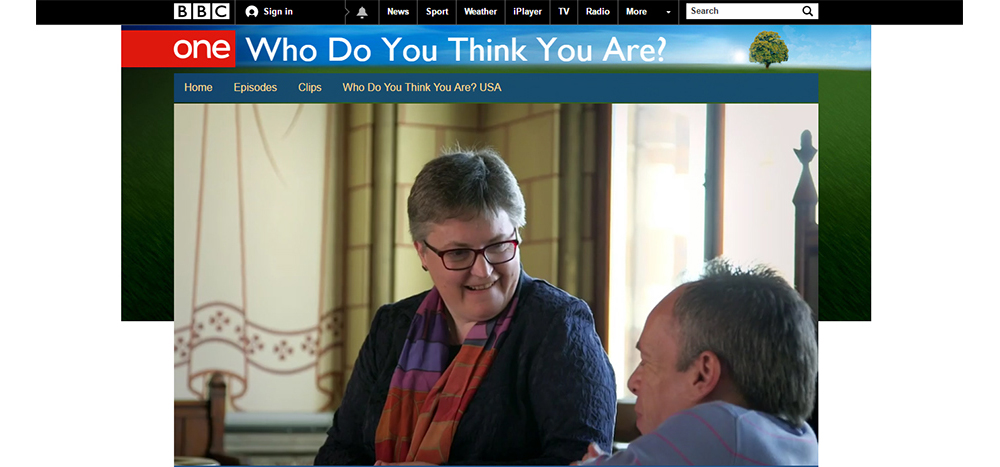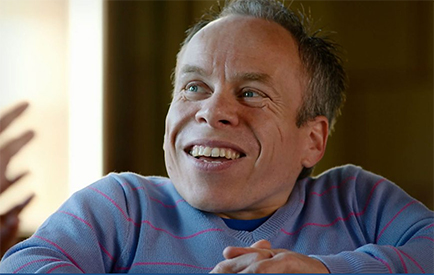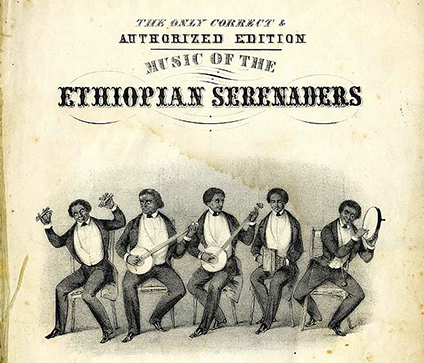Prof eases actor Warwick Davis’s upset on BBC TV tonight

Wed, 15 Feb 2017 12:15:00 GMT
Professor Rachel Cowgill comes to the rescue when the famous actor appeared on Who Do You Think You Are? to discover one his forebears performed as a blackfaced musician
 POPULAR actor and presenter Warwick Davis (pictured right) is the latest celebrity to uncover his roots in the BBC television programme Who Do You Think You Are?. He is pleased to discover a forebear who was a professional entertainer – but duly shocked when a University of Huddersfield expert explains just what branch of the business his ancestor was involved in.
POPULAR actor and presenter Warwick Davis (pictured right) is the latest celebrity to uncover his roots in the BBC television programme Who Do You Think You Are?. He is pleased to discover a forebear who was a professional entertainer – but duly shocked when a University of Huddersfield expert explains just what branch of the business his ancestor was involved in.
Warwick’s great great grandfather Dennis Manning was from an Irish immigrant family living in East London. He became a violinist and in 1858 he performed with Pell’s American Opera Troupe. This was led by Gilbert Pell, who was also a member of a popular group from the U.S. that toured Britain named the Ethiopian Serenaders. It was a blackface minstrel troupe.
 This meant that when Dennis Manning took to the stage with Pell’s ensemble, he almost certainly blacked up, using burnt cork, and performed songs and music plus what playbills described as “the comicalities, eccentricities and whimsicalities of the slaves and free blacks of America”.
This meant that when Dennis Manning took to the stage with Pell’s ensemble, he almost certainly blacked up, using burnt cork, and performed songs and music plus what playbills described as “the comicalities, eccentricities and whimsicalities of the slaves and free blacks of America”.
Professor Rachel Cowgill, Head of Music and Drama at the University – is a leading researcher of music and musical life in the 19th century. Her work has led her to investigate the blackface minstrel troupes that flourished during this period.
They were popular well into the 20th century, and the BBC TV’s now controversial Black and White Minstrel Show remained on air until the 1970s. But today they are abhorred, which meant that when Professor Cowgill was enlisted to explain to Warwick Davis just how his great great grandfather had performed on stage, it was an eye-opener.
“I showed him the evidence and he finally twigged!” said Professor Cowgill, who added that the actor had been a pleasure to work with. The two were filmed at Northampton Town Hall, where Pell’s American Opera Troupe, with Dennis Manning, appeared in June 1858.
Professor Cowgill points out that during the Victorian period, blackface minstrel performance – by professionals and amateurs – was regarded as good, clean, wholesome entertainment. “The thing that people often don’t get today is that it was highly respectable. In America, it was a very edgy, street-based form of entertainment, but when it comes to the UK it becomes very bourgeoisified.”
Blackface minstrel troupes also performed in seaside resorts, where holidaymakers were accustomed to seeing wandering bands singing songs and playing banjos. Also, some high quality music was written for performance by minstrels, said Professor Cowgill, who added that other cultural influences on the troupes included Lancashire clog and Irish step dancers.
In her contribution to the 2012 book Music and Institutions in Nineteenth-Century Britain, Professor Cowgill’s chapter on The Victorian Policeman as Musician includes a description ofthe Metropolitan Police Minstrels, a blackface troupe made up of serving officers.
It performed regularly in the capital for over 60 years, from around 1870 until 1933, and its popularity was such that similar troupes started up in police forces elsewhere in the country. Now, Professor Cowgill aims to research the Metropolitan Police Minstrels in extra depth, for a new book.







